Ending up with neurological damage after a brain injury isn’t on anyone’s wish list. While there is no consensus on a medicinal agent that promotes recovery, our doctors have a PRP brain trauma protocol called PLAN that uses scientific methods to aid in recovery.
Concussion diagnoses are on the rise
A concussion, or mild traumatic brain injury (mTBI), occurs when a blow to the head causes the brain to strike the inside of the skull. While it is unclear whether the number of concussions has increased, recognition and diagnosis of brain injuries from concussions are certainly on the rise. Standard treatment for concussions includes neurological rest aimed at avoiding the aggravation of symptoms combined with progressive physical activity to aid in recovery. There is, however, no consensus on a medicinal agent that promotes recovery.
Concussions set off a cascade of biochemical reactions that cause bleeding, inflammation, and a disruption of electrical signaling in the brain. It is analogous to a brain bruise. If treated in the days immediately following a concussion, the initial inflammatory response can be modified and reduced significantly by dietary, hormonal, and nutritional therapies, rest, and a modified return to physical exercise. Specific treatments we employ are described below:
Progesterone is a hormone that has been shown to protect the brain and, when given within hours after a brain injury, can reduce inflammation and damage to the cells of the brain. Insulin is another hormone that can lessen inflammation by reversing the “energy crisis” that occurs in post-concussion brain cells.
A ketogenic diet, when implemented immediately following an injury, protects brain cells from damage by altering cell metabolism and lowering inflammation.
Many other nutrients can help reduce inflammation in the brain such as DHA, vitamin D, CoQ10, resveratrol, and curcumin.
Can the brain injury PLAN aid recovery?
Since some degeneration is unavoidable, reducing inflammation while promoting healing and regeneration is crucial. This is where our PRP brain trauma program, called the PLAN protocol may be useful. PLAN stands for Platelet Lysate Autologous Nebulization. Studies on Platelet lysate show it to decrease inflammation associated with brain injury. Using growth factors that have been extracted and concentrated from the patient’s own blood, researchers have delivered it through the nose, at the cribriform plate. This allows the growth factors to cross the blood-brain-barrier, and enter into the brain where they stimulate healing along with the growth of new brain cells. Treatments are administered using a nebulizer device daily over the course of 2 weeks.
All of the above therapies combine to potentially speed up post-injury brain healing and increase odds of a full recovery. Time is of the utmost importance after a brain injury so contact Oregon Regenerative Medicine as soon as you or someone you know sustains a concussion to receive the most effective brain trauma treatment. Or, better yet, come in today for a comprehensive brain health assessment and learn about preventive measures you can take to keep your brain healthy.
1Brabazon F, Wilson CM, Jaiswal S, Reed J, Frey WH, Byrnes KR. Intranasal insulin treatment of an experimental model of moderate traumatic brain injury. J Cereb Blood Flow Metab. 2017;37(9):3203-3218.
2Prins ML, Matsumoto JH. The collective therapeutic potential of cerebral ketone metabolism in traumatic brain injury. J Lipid Res. 2014;55(12):2450-7.
3Barrett EC, Mcburney MI, Ciappio ED. ω-3 fatty acid supplementation as a potential therapeutic aid for the recovery from mild traumatic brain injury/concussion. Adv Nutr. 2014;5(3):268-77.
4Wentz LM, Eldred JD, Henry MD, Berry-cabán CS. Clinical relevance of optimizing vitamin D status in soldiers to enhance physical and cognitive performance. J Spec Oper Med. 2014;14(1):58-66.
5Salberg S, Yamakawa G, Christensen J, Kolb B, Mychasiuk R. Assessment of a nutritional supplement containing resveratrol, prebiotic fiber, and omega-3 fatty acids for the prevention and treatment of mild traumatic brain injury in rats. Neuroscience. 2017;365:146-157.
6Zhu HT, Bian C, Yuan JC, et al. Curcumin attenuates acute inflammatory injury by inhibiting the TLR4/MyD88/NF-κB signaling pathway in experimental traumatic brain injury. J Neuroinflammation. 2014;11:59.
7Zhang Y, Ying G, Ren C, et al. Administration of human platelet-rich plasma reduces infarction volume and improves motor function in adult rats with focal ischemic stroke. Brain Res. 2015;1594:267-73.
8Hayon Y, Dashevsky O, Shai E, Varon D, Leker RR. Platelet lysates stimulate angiogenesis, neurogenesis, and neuroprotection after stroke. Thromb Haemost. 2013;110(2):323-30.




